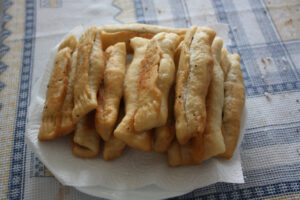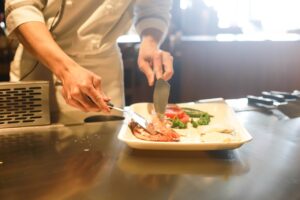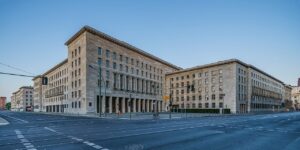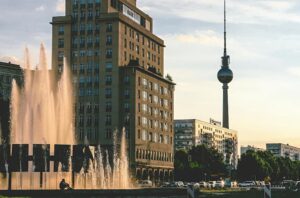Recently, I went to an Italian restaurant. The food was good and I left satisfied a while later.
Not, you might think, the most exciting story you’ve ever heard. Yet, this is a restaurant in Berlin, and far more than meets the eye lurks below the surface.
Today, the place where I had lunch is called MOLA Ristorante and Café, and it’s located right across the road from the Wittenburgplatz U-Bahn station, and next to the legendary department store, the KaDeWe. In other words, it’s ideally located in the heart of one of Berlin’s liveliest, brightest and most energic neighborhoods, a place looking to the future and buzzing with a positive vibe.
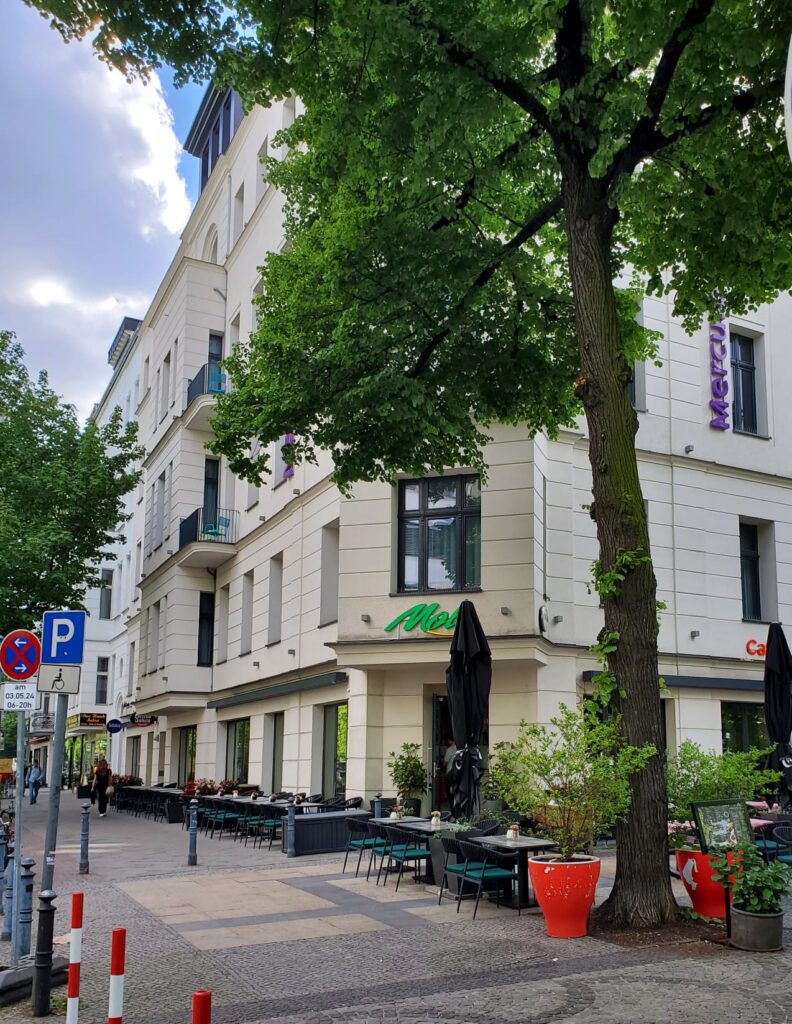
Nice Restaurant today – Earlier owned by Adolf Hitler´s Half-brother, Alois
Yet today’s restaurant, full of cheerful shoppers and business people on lunch break, occupies a building with a dark past. In the days of the Third Reich, there was also a restaurant located here, but 90 years ago it was a place frequented by members of the SS and the Nazi party. This is unsurprising when you realize that it was owned by none other than Adolf Hitler’s half-brother Alois.
Alois did not have an easy Childhood
Alois was Adolf’s older half-brother, and the two never got along well. They shared the same father, also called Alois, but their father’s third wife Klara, the mother of the future Fuhrer, doted on Adolf while generally ignoring the child of her husband’s previous marriage. Alois didn’t have an easy childhood and soon after leaving home, he began to descend into a life of crime.
Alois was no role Model – had Problems to hold meaningful Work
Hitler’s half-brother was no role model. He served two prison terms for theft, before running away to London to gain a fresh start. He got married, had a child, and quickly descended into alcoholism and abuse, unable to hold down meaningful work. He returned to Austria and continued to find himself in constant troubles, being in and out of court and serving short prison terms, including for bigamy.
The Half-brothers where not the Best Friends
After his younger brother came into power in 1933, Alois briefly joined the Nazi Party, then left, with some claiming his brother refused to confirm his membership. Be that as it may, Alois continued to work odd jobs and generally achieving not much of note. Surprisingly, he eventually managed to scrape together the funds to invest in a café and restaurant which he then modestly called after himself, the «Konditorei Café Alois» on Wittenburgplatz 3.
His modest sum of money was far from the only power at Alois’ disposal; he used his famous name to ensure the Jewish owners of the building were evicted and personally beat them up to help persuade them to leave.
Astonishingly, the building is still intact, despite the predictable wartime damage. It’s an absolutely typical building from the era of Kaiser Wilhelm II and is not the type of structure you’d pay particular attention to if you happen to walk by. The café’s interior retains the basic floor layout of Alois’ place, but otherwise has been completely renovated with an Italian themed décor, and fully modernized. Obviously, the current owners and clientele have no connection to the unsavory character who owned the spot nine decades earlier, so that’s to be expected.
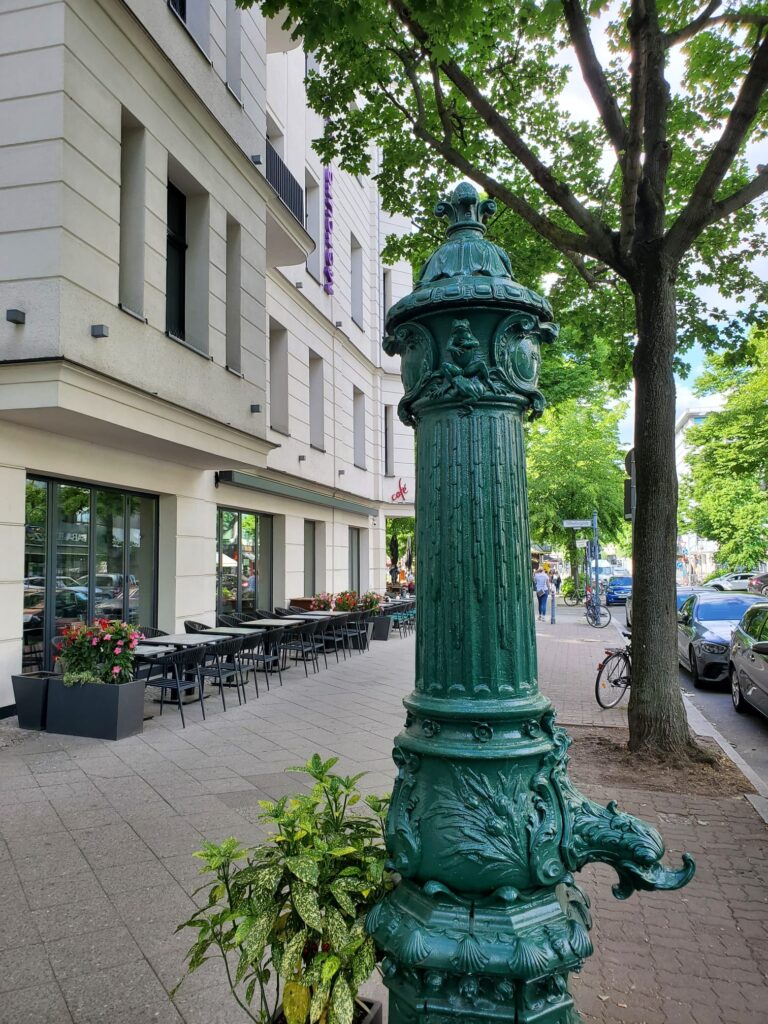
In place of today’s cheerful young people, the clientele that Alois attracted where of a different sort. The street thugs of the SA and the elite thugs of the SS, as well as party members of all ranks, were regulars. Alois’ eatery became of one those places to be seen, with the fascists no doubt reasoning that it couldn’t hurt to patronize the leader’s brother’s restaurant. Not to mention the fact that you could bump into anyone there, and end up making important connections. It was a sort of sinister fascist version of LinkedIn, but with alcohol involved. Many a Friday or Saturday evening no doubt could turn quite boisterous.
Hitler himself avoided the Restaurant and Never paid a Visit
However much the clientele wished to be seen patronizing the «right» sort of place (no pun, I’m sure), the fact remains that Hitler himself avoided the restaurant and never paid a visit. The Fuhrer was both annoyed and frustrated by his ne’er do well half-siblHing and on the very few occasions they actually met as adults, Hitler simply tended to shout at Alois, giving time severe tongue lashings for his crimes, which were both embarrassing and unnecessary. Alois ended up surviving the war by escaping to Hamburg and dying in the 1950s. His erstwhile restaurant survived the war as well and today bears no visible markings of its former use.
As I sat inside enjoying the food, I tried to reconstruct what a typical afternoon was like here over 90 years ago. Instead of Italian fare, a diner might have enjoyed «Ragout fin in mussel,» which was apparently the house specialty, for the grand sum of one Reichsmark. Both cheaper and altogether different from today’s Italian offerings.
After the War Alois Hitler attempted to distance himself from his half-brother by changing his name to Alois Hiller
I looked over at the door and tried to imagine a typical up-and-coming party member waltzing in, on the lookout for some higher up to meet and shmooze with, or some SA thug ready to down a few beers after a tough day arresting or harassing enemies of the regime, perceived or real. Today’s relaxed clientele of course brought none of that to mind. The scene has changed utterly, and the past is gone, out of sight.
And yet…the past has never quite vanished in Berlin.
Its tendrils linger and swirl around you, tugging at your subconscious and quietly insisting on your attention and respect. This eternal Berlin truth punched me in the gut when I looked out the window and saw, in the distance, an election poster connected to the upcoming EU parliamentary election hanging over the road, unnoticed by passersby.
This particular placard was in support of the AfD, today’s populist, far-right party. It swung and snapped fitfully in the spring breeze, tugging at the lines holding it to the lamppost, as if wanting to be cast free. I sat there gazing at it through the windows of Alois Hiter’s old restaurant, and for a fleeting moment, I thought I might have heard, if so far only in my mind’s ear, the raucous laughter of SS men waft into my conscious before soon fading out again. The spring sunshine couldn’t disperse the feeling of vague unease that came over me.
Lunch in Berlin is not always just Lunch
Indeed, in Berlin, the past is never so far away that it can’t suddenly reach out and nudge you, to provoke you and warn you. Lunch in Berlin is not always just lunch.

